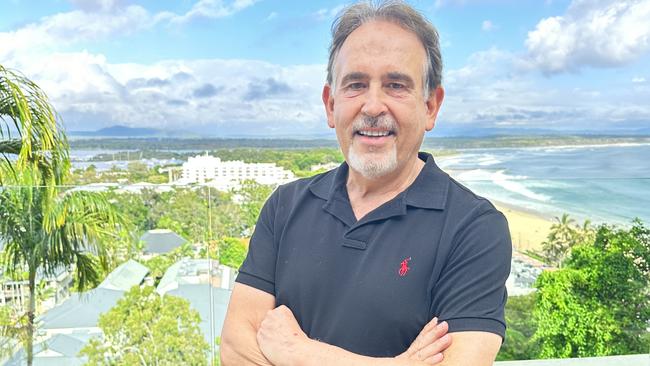Tech veteran Adrian di Marco says he had no alternative but to sack a ‘loyal’ sales manager
Australian technology veteran Adrian di Marco has told a court the termination of a ‘loyal’ manager could have been handled better, but he had always planned the departure to be amicable.

Business
Don't miss out on the headlines from Business. Followed categories will be added to My News.
Australian technology veteran Adrian di Marco has conceded the departure of a “loyal” ex-employee could have been handled better, but the founder of one of the country’s first start-ups insisted that he had planned to part ways amicably.
Mr di Marco told the Federal Court on his third and final day of cross-examination in a nine-year-old unfair dismissal case lodged by former TechnologyOne regional sales manager Behnam Roohizadegan, that the company did some “soul-searching” after he sacked him in May 2016.
“(I wanted) to put to an end the angst (and) anguish that (Mr Roohizadegan) was clearly suffering,” Mr di Marco said.
“(And) also the pain that was now reverberating through the company. It was not a good situation; I wanted to communicate the decision I had made … so we could part ways, and he could move on,” he said.
“I was hoping to separate on good terms with Benham, but that’s not what we achieved. We did a bit of soul-searching afterwards.
“I was hoping to part ways on amicable terms, but we didn’t achieve that.”
Mr Roohizadegan has accused the company and Mr di Marco of unfairly sacking him after he claimed he was bullied by senior executives.
But Mr di Marco and TechnologyOne deny that, and say there were performance issues with Mr Roohizadegan. As well, the company alleged Mr Roohizadegan presided over a culture of fear in the Victorian office.
Mr di Marco said he previously ignored advice from other members of the executive team, including Mr Roohizadegan’s direct boss, Martin Harwood, who Mr di Marco said appeared to suggest he should have been cut loose from the company earlier.
“In the case of Benham, I intervened. I was loyal to a lot of the people that started the business with me,” he said.
But after Mr di Marco received a letter from a human resources staff member which contained specific complaints against Mr Roohizadegan, he said it was the “straw that broke the camel’s back”.
“I had all the facts. They had been presented to me one way or the other. It was a decision I should have made. (The HR staff member’s) email arrived … (and) I couldn't procrastinate. I had a team in crisis. I was going to lose the team,” he said.
“I should have backed Martin; he is a mature highly trained executive. I didn’t do the right thing by Martin. I overrode him. I respect Martin because he didn’t argue and accepted my call. He wore the brunt of my decision.”
Mr di Marco backed in his decision to have uncapped incentives at the company despite receiving criticism about it from the board and shareholders, but stood by the perk – which Mr Roohizadegan collected throughout his employment – as a way to retain high-performing staff and sales managers in particular.
“If they’re doing well, the company is doing well,” he said.
“I needed people around me that could also commit to me, and they’re hard to find and if you find them then they’re gold and so you pay them a lot of money.”
Discussing his entry into the sector, Mr di Marco, who is now 67-years-old, described sales and deals as the “lifeblood of a tech company”.
“It’s all about sales, getting those new deals across the line. And so that’s an area that I did, yes, get intimately involved,” he said.
Mr di Marco concluded giving evidence in the trial on Wednesday. The trial continues.
More Coverage
Originally published as Tech veteran Adrian di Marco says he had no alternative but to sack a ‘loyal’ sales manager





